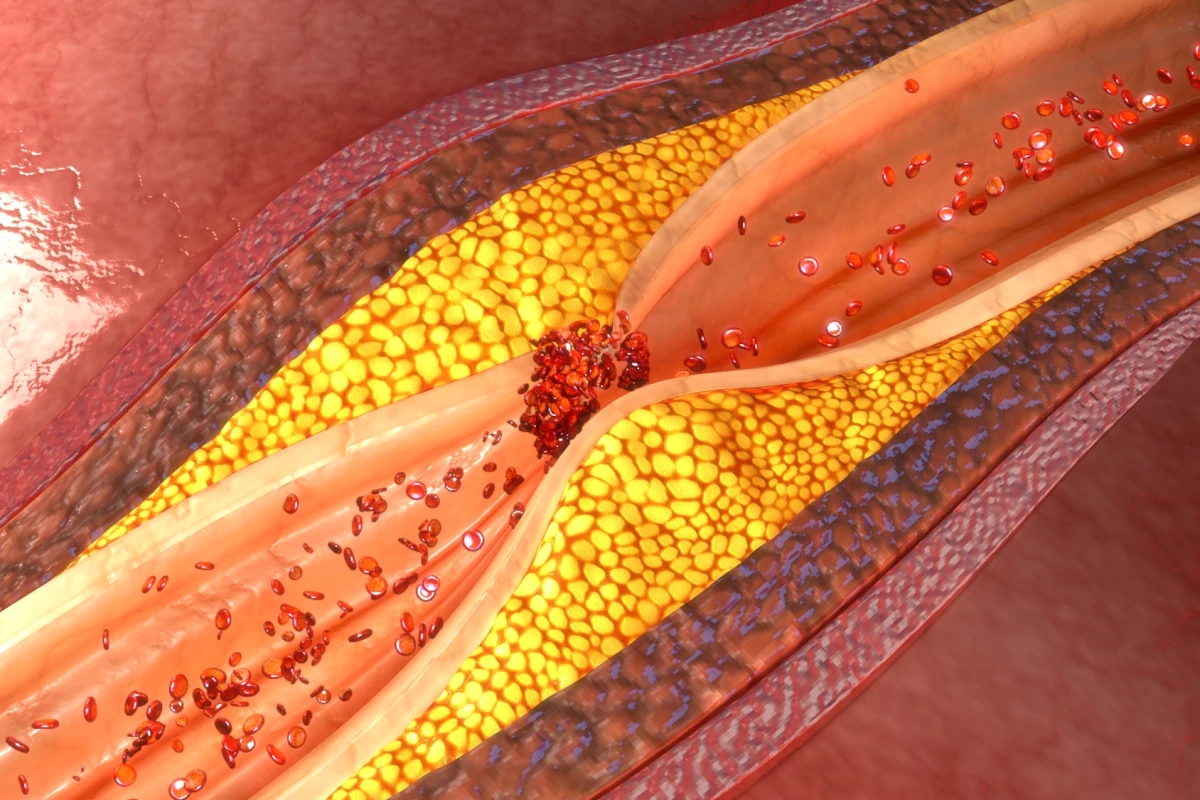Atherosclerosis is a disease where fatty plaques build up in the arteries, increasing a person’s risk of suffering a heart attack or stroke. But now, researchers at Oxford University have found a protein that appears to trigger this cascade of events, and drugs that target it could lead to new prevention methods for these deadly buildups.
In many people – but particularly those who smoke or eat high-fat diets – arteries tend to become damaged over time. Areas where the arteries bend or branch off are more vulnerable to chronic inflammation, which affects blood flow and triggers plaques to build up at that site. That in turn limits blood flow further, eventually contributing to heart attacks and strokes.
Scientists don’t yet know how all the pieces fit together in this process, but it seems that certain molecules act as “mechanosensors.” Basically, that means they detect disturbances in blood flow caused by arterial damage. Now, a team of Oxford researchers has found that a mechanosensing protein called Plexin D1 seems to be implicated quite heavily in the formation of plaques.
“We used very tiny magnetic ‘tweezers’ to pull on the Plexin D1 protein, and we found that it responded to the pulling force by releasing signals that start a domino effect, ultimately resulting in plaque that can go on to cause a heart attack,” says Ellie Tzima, lead researcher on the study.
The team tested the protein’s role in mice, and found that it can fold itself into two main shapes – a closed ring or an open “chair-like” shape. And importantly, this changed its effects. Only the chair-shaped proteins responded to the tweezers, while the ring-shaped ones ignored it.
The researchers engineered cells that only had the ring-shaped Plexin D1, and sure enough, they didn’t respond to the blood flow disturbances and as such, didn’t trigger the processes that lead to plaque buildup. Going a step further, the team engineered mice to only have ring-shaped Plexin D1, and their arteries accumulated much less plaque, even when fed a high-fat diet.
The discovery of this protein and mechanism isn’t directly applicable to humans yet, but the team says that it uncovers an important new target for developing drugs that could one day prevent atherosclerosis.
“We’re now screening drug libraries to try a drug that blocks only the chair-shaped Plexin D1, so that we can block plaques before they even start,” says Tzima.
The research was published in the journal Nature.
Source: Oxford University




